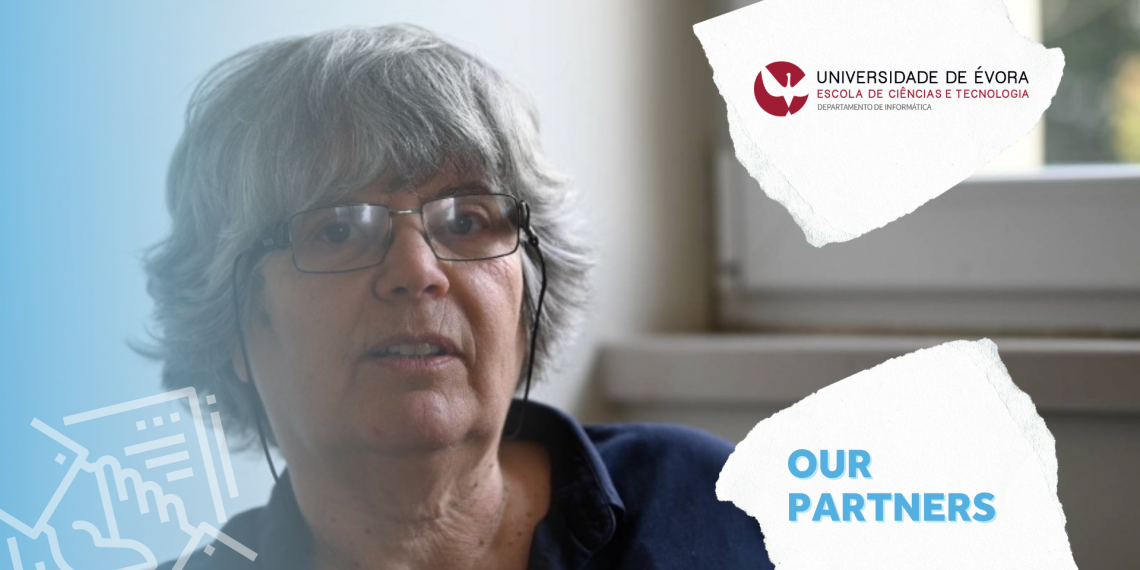The University of Évora is part of the Portuguese public higher education system, and is located on the Lisbon-Badajoz axis; it provides a range of training options in the humanistic, scientific, technological and artistic areas.
This month, we talked with Irene Pimenta Rodrigues, professor at the University of Évora, and responsible for the EPISA project at this institution; this initiative, promoted in partnership with INESC TEC, is funded by the Call for Projects of Scientific Research and Technological Development in Data Science and Artificial Intelligence in Public Administration (2018).

Name of the organisation: University of Évora
Business area: Higher Education
Name: Irene Pimenta Rodrigues
Position in the organisation: Professor
INESC TEC centre with which organisation collaborated: Human-Centered Computing and Information Science (HumanISE)
Project name: RDA-pt and EPISA
Project managers at INESC TEC: Cristina Ribeiro and Carla Teixeira
What is the connection between the University of Évora and INESC TEC?
I am part of the Research Data Alliance Portugal (RDA-pt) project, led by INESC TEC; I act as coordinator of said initiative, together with Cristina Ribeiro. The RDA-pt national hub was a formal participant in the European initiative, RDA Europe 4.0, within the scope of the global RDA. The main goal of the project is to connect Portuguese communities that generate or use research data to the work developed within the working groups and interest of the RDA, by promoting the dissemination of the results of the RDA working groups and their adoption in Portugal. Currently, the University of Évora is a partner of the FTC project EPISA, which is led by INESC TEC; the Torre do Tombo is also one of the project’s partners.
What are the main results of this collaboration?
Under the RDA-pt, it was possible to increase the number of members of the hub and the Portuguese institutions involved in the RDA, through the organisation and participation in workshops and conferences where the RDA initiative was disseminated. Another important action was the support to the visits of researchers to the plenaries of the RDA, which contributed to the involvement of new people in the activities and the dissemination of the actions organised by the Portuguese hub.
Concerning the EPISA project, we obtained important results: a linked data model for the data available at Torre do Tombo archives; a prototype for the migration of TT data to the new model; interfaces to explore the information represented in the new paradigm.
One of the projects that featured both entities ended quite recently. How do you rate the results and opportunities?
The results of the EPISA project exceeded the initial expectations, leading to several international publications and creating opportunities for new developments in the field, particularly in terms of PhD works taking place.
How do you rate your experience with INESC TEC?
The activities with Cristina Ribeiro and other members of her team are very enriching, but they also pose interesting challenges.
What do you value the most in this collaboration?
The excellence of INESC TEC researchers, the computational and human resources, the Institute’s competencies, and the excellent attitude and teamwork.
What can we expect from the University of Évora in the upcoming years?
As the RDA-pt project continues, we’ll keep collaborating with INESC TEC in the upcoming years. Moreover, we are always available to collaborate with INESC TEC again, especially in domains where we’ve worked together before.




 News, current topics, curiosities and so much more about INESC TEC and its community!
News, current topics, curiosities and so much more about INESC TEC and its community!